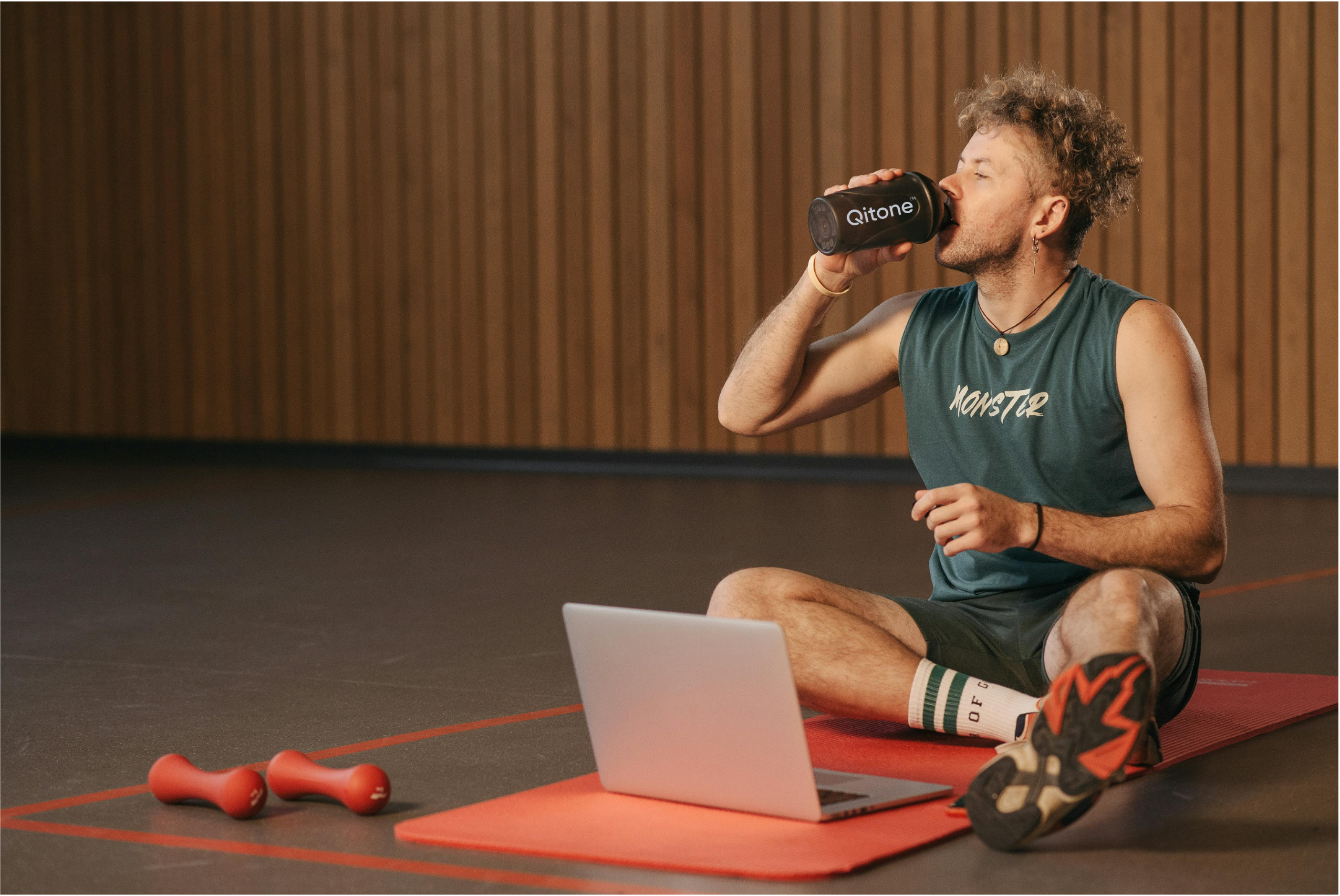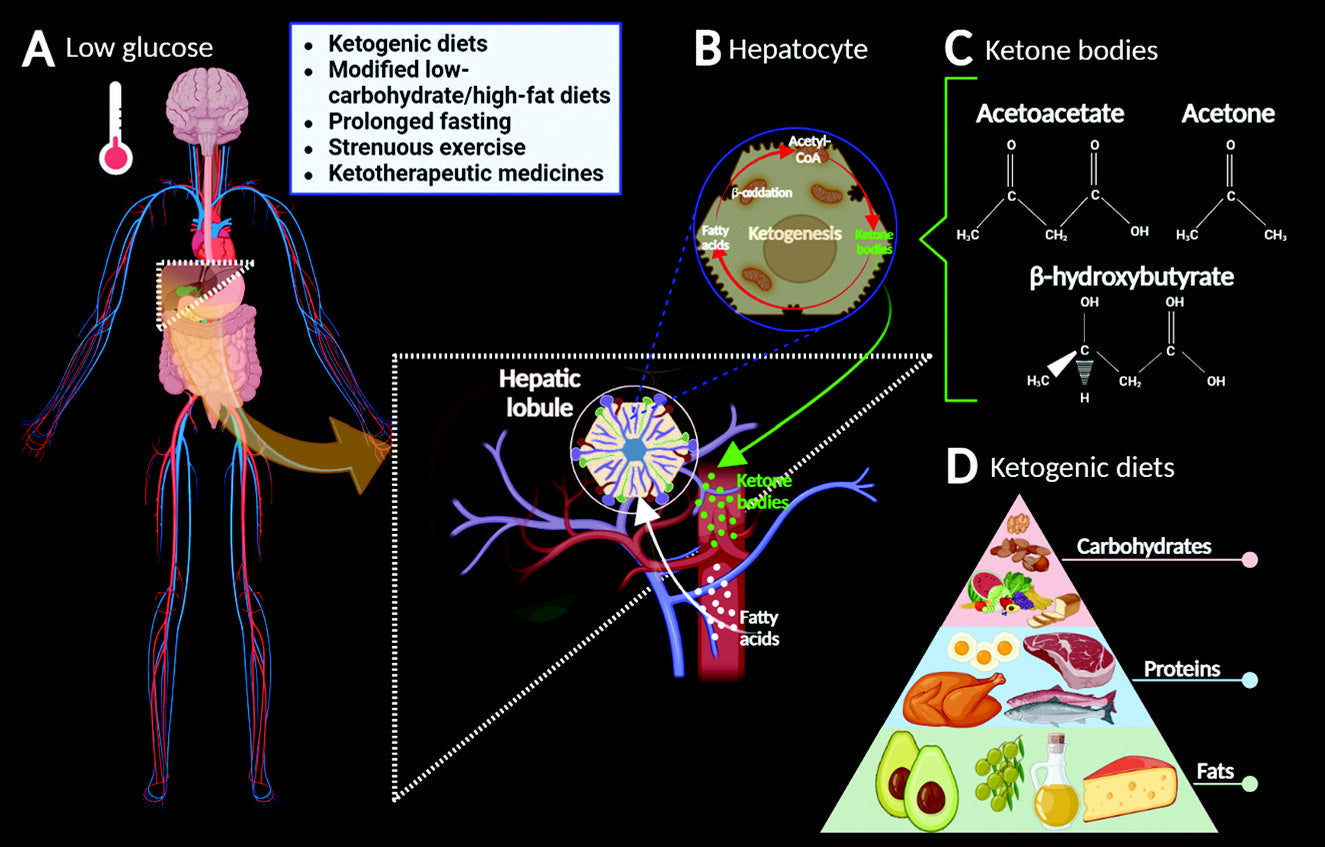Blue Zone Habits: 10 Secrets for Living Longer
Around the world, there are unique regions known as Blue Zones, where people not only live longer but also live better. These areas have the highest concentrations of centenarians. While genetics play a role in longevity, what truly sets these individuals apart are their daily habits and lifestyle choices that contribute to their vitality.
At Qitone, we draw inspiration from these longevity cultures. Our pro-ketone powder is designed to support your brain and body with clean, natural energy, helping you feel sharper, stronger, and more present every day. Let’s explore the 10 principles of longevity from the Blue Zones and see how Qitone fits into this approach to better living.
1. Move Naturally Throughout the Day
In Blue Zones, physical activity isn’t limited to 45-minute gym sessions. Instead, it is integrated into daily life. People walk to visit friends, garden in the afternoons, knead dough by hand, or carry groceries home. The movement is frequent, low-intensity, and often linked to meaningful activities.
While modern life often requires prolonged sitting, simple changes can make a significant difference. Consider walking meetings, doing household chores, dancing, or stretching during breaks to combat sedentary habits. The key to a healthy lifestyle is not intensity but consistency.
2. Eat Mindfully and Stop at 80% Full
A common habit among many Blue Zone cultures is stopping meals before feeling completely full. In Okinawa, this practice is called Hara Hachi Bu, encouraging individuals to eat until they are about 80% satisfied.
This approach allows your body time to register fullness and promotes smoother digestion. Slowing down, using smaller plates, and minimizing distractions during meals can help you reconnect with your natural hunger and satiety cues.
3. Prioritize Plant-Based Foods – Especially Beans
Plant-based eating is a cornerstone of every longevity culture. While diets may vary, most meals are centered around vegetables, greens, legumes, nuts, and whole grains. In particular, black beans, lentils, and chickpeas are staples in nearly every Blue Zone.
These foods are nutrient-dense and rich in fiber, which supports digestive health and provides long-lasting energy. A plant-forward diet focuses on making plants the default option rather than eliminating other foods.
4. Enjoy a Glass of Wine with Loved Ones
Meals in Blue Zones are rarely rushed or eaten alone. Food is often shared among family, friends, or neighbors, creating opportunities for deeper connections. In some cultures, a glass of wine is part of the social experience, but always consumed in moderation and in good company.
Making mealtimes more meaningful – even just once a day – nourishes more than just the body. Prioritize conversation, set away your phone, and view mealtimes as a chance to slow down and reconnect.
5. Find Your Purpose (and Live It)
Having a clear sense of purpose – something beyond oneself to care about – is one of the strongest predictors of longevity. In Okinawa, it’s known as ikigai, while in Nicoya, Costa Rica, it’s referred to as plan de vida. People in these regions wake up every day with a sense of direction, no matter their age.
Purpose doesn’t have to be grand or externally validated. It can be as simple as raising a family, tending a garden, volunteering, or learning something new. What matters is that it is significant to you, and that you make time for it in your life.
6. Build in Time to De-Stress Every Day
Stress affects everyone, but our responses to it shape our long-term health. In Blue Zones, daily rituals create opportunities for relaxation. These may include prayer, tea ceremonies, naps, or time spent in nature.
Start by identifying small moments where you can breathe, reset, and disconnect from stress. This could involve ten minutes of silence in the morning, a walk after lunch, or journaling at night. These routines can help anchor you in a state of calm.
7. Stay Socially Connected with Family and Friends
Strong social bonds are a defining characteristic of Blue Zone communities. Whether in multigenerational households or close-knit villages, people feel seen and supported. Friendships are not just social; they serve as protective factors for health.
In our digital age, making connections takes intention. Check in with a friend, plan a weekly meal with a loved one, or join a local group that shares your interests. Human connection is essential for well-being.
8. Be Part of a Faith or Spiritual Community
Many Blue Zone cultures engage regularly in spiritual or religious practices, whether formal or informal. These rituals foster a sense of belonging, gratitude, and perspective.
If you’re not religious, spirituality can take many forms: meditation, mindfulness, taking walks in nature, or simply cultivating a sense of awe and tranquility. The important thing is to engage in activities that help you connect to something larger than your daily routine.
9. Volunteer or Help Others Regularly
Giving back is not only altruistic; it’s also beneficial for your health. Whether through volunteering, assisting a neighbor, or supporting a friend, acts of service enhance your sense of purpose and resilience.
Find something that feels genuine and sustainable. Longevity cultures teach us that staying actively involved in our communities enriches our lives.
A Better Everyday Starts with the Basics
You don’t have to relocate to Sardinia or Ikaria to create a long and healthy life. By practicing these habits with intention, you can bring more clarity, balance, and energy into your daily routine. It's not about striving for perfection; it's about finding alignment.
True longevity isn’t just about adding years to your life - it’s about enhancing the quality of those years. Start from where you are. Build gradually, and consistently show up for yourself in the ways that matter most.
For those wishing to support their journey with clean, brain-friendly fuel, Qitone provides a simple, science-backed approach to energizing your body and sharpening your focus, helping you feel your best every day.best every day.





Leave a comment
This site is protected by hCaptcha and the hCaptcha Privacy Policy and Terms of Service apply.